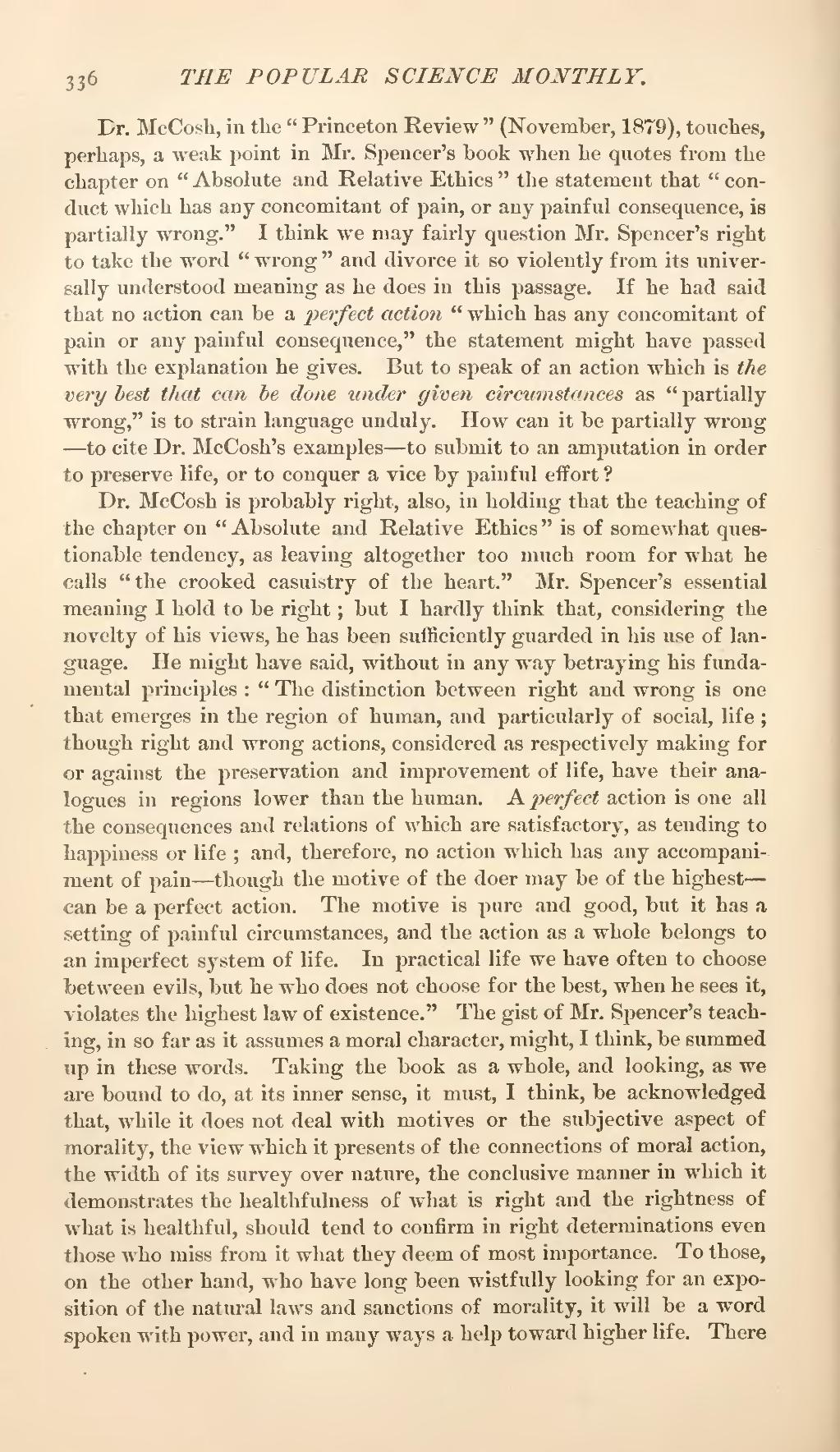Dr. McCosh, in the "Princeton Review" (November, 1879), touches, perhaps, a weak point in Mr. Spencer's book when he quotes from the chapter on "Absolute and Relative Ethics" the statement that "conduct which has any concomitant of pain, or any painful consequence, is partially wrong." I think we may fairly question Mr. Spencer's right to take the word "wrong" and divorce it so violently from its universally understood meaning as he does in this passage. If he had said that no action can be a perfect action "which has any concomitant of pain or any painful consequence," the statement might have passed with the explanation he gives. But to speak of an action which is the very best that can be done under given circumstances as "partially wrong," is to strain language unduly. How can it be partially wrong—to cite Dr. McCosh's examples—to submit to an amputation in order to preserve life, or to conquer a vice by painful effort?
Dr. McCosh is probably right, also, in holding that the teaching of the chapter on "Absolute and Relative Ethics" is of somewhat questionable tendency, as leaving altogether too much room for what he calls "the crooked casuistry of the heart." Mr. Spencer's essential meaning I hold to be right; but I hardly think that, considering the novelty of his views, he has been sufficiently guarded in his use of language. He might have said, without in any way betraying his fundamental principles: "The distinction between right and wrong is one that emerges in the region of human, and particularly of social, life; though right and wrong actions, considered as respectively making for or against the preservation and improvement of life, have their analogues in regions lower than the human. A perfect action is one all the consequences and relations of which are satisfactory, as tending to happiness or life; and, therefore, no action which has any accompaniment of pain—though the motive of the doer may be of the highest—can be a perfect action. The motive is pure and good, but it has a setting of painful circumstances, and the action as a whole belongs to an imperfect system of life. In practical life we have often to choose between evils, but he who does not choose for the best, when he sees it, violates the highest law of existence." The gist of Mr. Spencer's teaching, in so far as it assumes a moral character, might, I think, be summed up in these words. Taking the book as a whole, and looking, as we are bound to do, at its inner sense, it must, I think, be acknowledged that, while it does not deal with motives or the subjective aspect of morality, the view which it presents of the connections of moral action, the width of its survey over nature, the conclusive manner in which it demonstrates the healthfulness of what is right and the Tightness of what is healthful, should tend to confirm in right determinations even those who miss from it what they deem of most importance. To those, on the other hand, who have long been wistfully looking for an exposition of the natural laws and sanctions of morality, it will be a word spoken with power, and in many ways a help toward higher life. There
